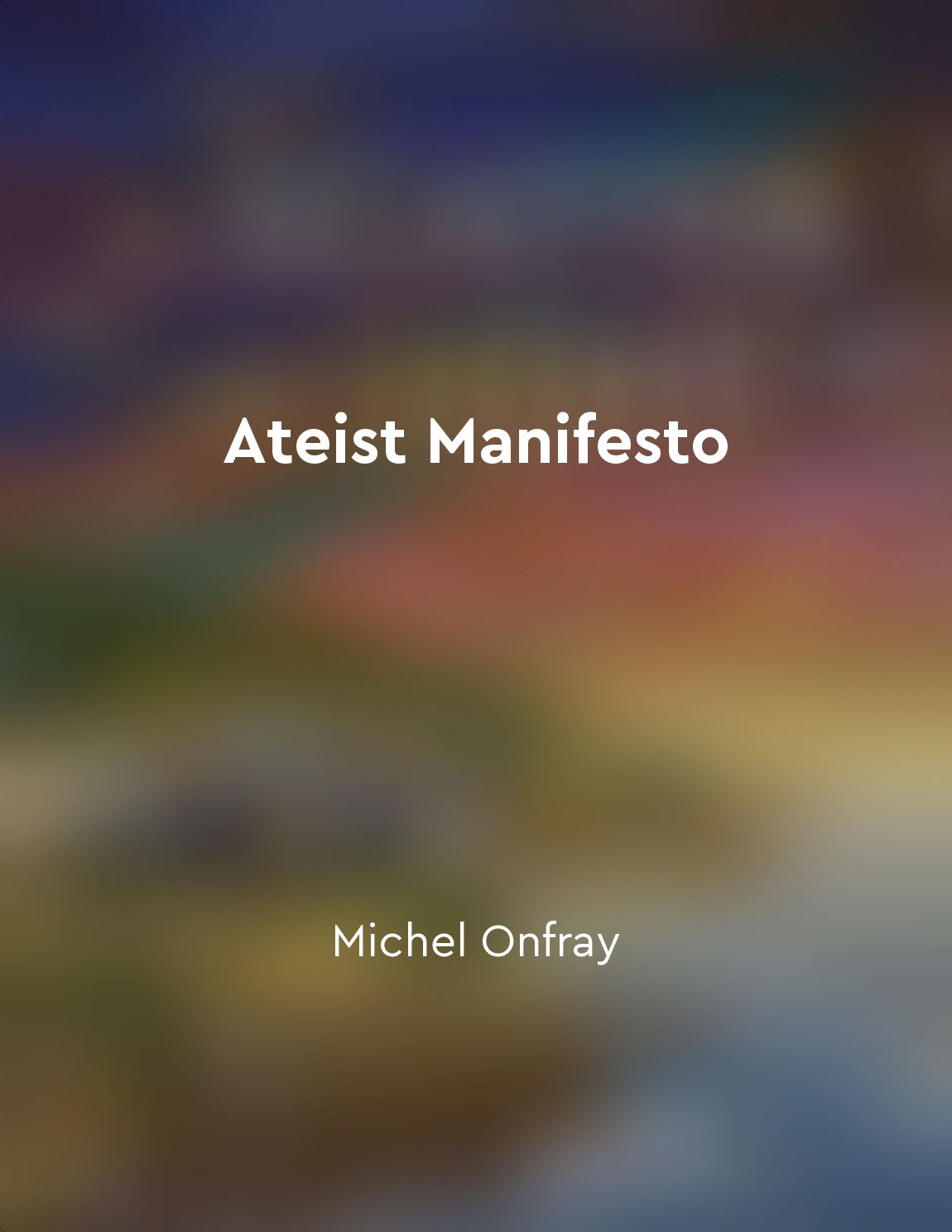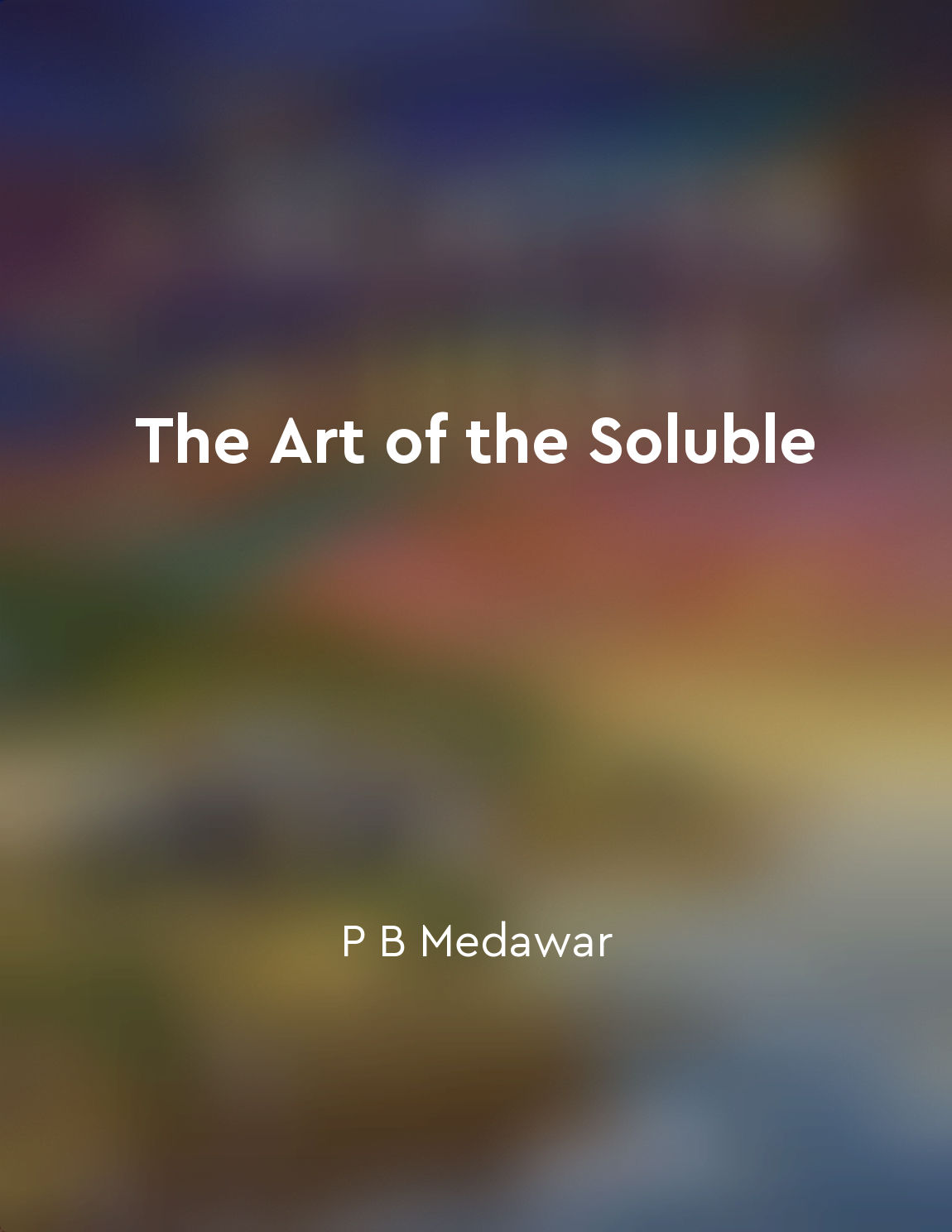Skepticism questioned the possibility of knowledge from "summary" of The Dream of Reason by Anthony Gottlieb
Skepticism was a philosophical position that emerged in ancient Greece and posed a fundamental challenge to the very idea of knowledge. Skeptics doubted the possibility of attaining true knowledge about the world, arguing that our senses can deceive us and that our reasoning can lead us astray. This skeptical attitude towards knowledge was a radical departure from the optimism of earlier thinkers who believed in the power of human reason to uncover the truth about the universe. The skeptics believed that certainty was unattainable and that all beliefs were ultimately based on shaky foundations. They pointed out the limitations of our senses and the fallibility of our reasoning, arguing that our perceptions could be distorted and our judgments clouded by bias. This skepticism extended to all areas of human knowledge, including science, ethics, and religion. The skeptics were not nihilists who believed in nothing; rather, they advocated for a more humble and cautious approach to knowledge. They urged people to suspend judgment and to be open to the possibility that their beliefs might be mistaken. This attitude of intellectual humility was seen as a virtue, as it encouraged people to critically examine their beliefs and to be aware of the limitations of human understanding. Despite their skepticism, the skeptics did not deny the existence of truth or the possibility of knowledge altogether. Instead, they argued that knowledge was always provisional and subject to revision in the face of new evidence or arguments. This attitude of openness to new ideas and willingness to reconsider one's beliefs was seen as a key aspect of intellectual integrity. In challenging the very possibility of knowledge, the skeptics raised profound questions about the nature of truth, certainty, and belief. Their skepticism was a reminder of the limitations of human understanding and a call for intellectual humility in the face of the complexity and uncertainty of the world. The legacy of the skeptics continues to influence philosophical debates to this day, reminding us of the importance of critical thinking and open-mindedness in the pursuit of knowledge.Similar Posts

Recognize when to adjust your confidence level
Confidence is an essential ingredient in achieving success. It gives us the courage to take risks, make decisions, and pursue o...
Religious faith is a barrier to progress and enlightenment
Religious faith, according to Dawkins, inhibits progress and enlightenment. This is because faith is based on belief without ev...
Strengthen analytical thinking
To sharpen our analytical thinking skills, we must first recognize that thinking is not a passive activity, but rather an activ...

Acknowledge cognitive distortions
Understanding cognitive distortions is an essential step in overcoming negative thought patterns and improving our mental well-...

Atheists prioritize evidencebased reasoning
Atheists approach the world with a particular mindset: evidence-based reasoning. They value empirical evidence, verifiable fact...
Value constructive feedback
When we seek feedback, we often hope for validation and praise. We want to hear that we're doing well, that our ideas are great...
Supremacy
The concept of supremacy is a deep-seated belief system that is woven into the fabric of society. It is a framework that positi...

The pursuit of knowledge requires skepticism and critical thinking
The quest for knowledge is a noble pursuit that requires a healthy dose of skepticism and critical thinking. It is not enough t...
Existentialism focused on individual freedom and responsibility
Existentialism emphasizes the importance of individual freedom and responsibility. This philosophical movement argues that each...
